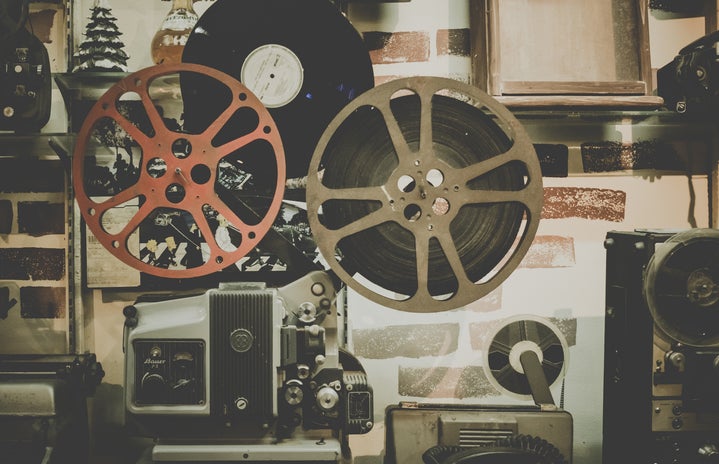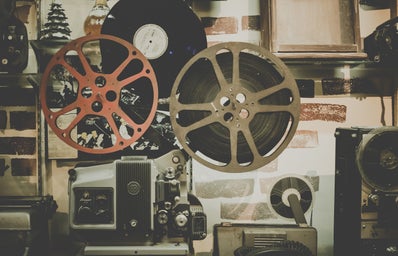When I first told my parents Carrie Fisher had died, they didn’t believe me. It was completely circumstantial. My family was leaving the theater after just watching Rouge One and – SPOILER! – her computerized face was in the last few seconds of the movie. However, I reminded them how Robin Williams’ suicide was announced while we were all watching The Best of Times, and they thought I was lying then as well.
My father and younger brother were visibly upset. None of the women in my family are particularly big Star Wars fans, but my father is the kind of man who has faithfully attended Star Wars Weekend at Hollywood Studios every year since 2003, and my brother dressed up as Kylo Ren before The Force Awakens first premiered. As for me, I thought all the aliens were named Chewbacca up until a stern intervention with a few of my film major friends.
The men in my family were devastated. Once we arrived home, I couldn’t help but notice my brother’s Star Wars action figures sprawled on the floor; Princess Leia being carefully placed on top of the pile. My father turned on the television which ran the breaking news of Carrie Fisher’s heart attack. “She was so young,” my mother told me. “Sixty is just too young.”
While I do believe every death is just as meaningful as the next, I realized I didn’t share the same immense feeling of sadness my father and brother were experiencing. It didn’t mean that the news of Carrie Fisher’s passing did not sadden me, but it wasn’t anything I felt compelled enough to post about on social media, run out to order her biography, and read up on her life.
My opinion was not the majority. Within a few days, I was invited to several vigils held in Fisher’s honor. The television showed nothing but Fisher’s old interviews, movies, and memorabilia. It seemed as though every celebrity on the planet had something wonderful to say about her. When I went outside I always found someone wearing an old Star Wars t-shirt.
Just one day later, Debbie Reynolds died.
Most of the focus on Reynolds’ death was on “broken heart syndrome” and the unfathomable bond between mother and daughter. I saw a few of my friends post on social media about the incident, but far less vigils and not any Singn’ in the Rain outfits seen out running errands. I didn’t think about how less fanfare people were making about the Golden Age Hollywood star until my grandmother called our house. Her voice was full of worry, and the distraught tone mirrored that of my father and brother’s. She explained how troubled she was over Reynolds’ death. When I asked why she took it to heart, my grandmother had a very emotional answer. She grew up with Debbie Reynolds. Not literally, of course. But my grandmother had been watching Reynolds tap-dance, sing, and act since the days she had been dating my grandfather.
I noticed how three very distinct age groups were mourning two actresses from completely different eras. My 50-year-old father who had seen all original Star Wars films in theaters and pre-teen brother currently engrossed in their sequels spent weeks re-watching her movies and talking about her life. On the other hand, my 79-year-old grandmother discussed how much Reynolds’ work meant to her. It is only natural to feel hurt by death, but when several hundred Star Wars fans organized their own lightsaber-vigil at Hollywood Studios, I couldn’t help but wonder why a celebrity whom many fans had never even met caused so much ordeal and so much grief.
2016 was a year filled with high-profile celebrity deaths in every pop culture domain. From musicians like David Bowie to political figureheads such as Nancy Regan, it seemed like everyone had a celebrity pass that was connected to their personal interests. At a closer glance, the oldest high-profile celebrity death was actress and socialite Zsa Zsa Gabor at age 99. That means that if your parents are 50-years-old like mine are, Gabor was already almost their age when they were born. These weren’t just actors and musicians that were important to our current pop culture. For the first time in our parents’ generation, the celebrities and role models they grew up with were passing away.
This tragedy directly impacts millennials as well. I grew up listening to my father’s classic rock CDs, so losing David Bowie was an earnest loss in my life. When the news of Bowie’s death spread across social media, I received a text from my friend Lukas Charbonnier, a student who lives in Nantes, France. He explained his emotions towards Bowie passing, and they aligned with my own feelings. We agreed that it was as if a tangible part of our childhood had disappeared. Though neither of us had never personally met Bowie, we associated him with important milestones in our lives. When I listened to Bowie’s music, I was back in my father’s car running errands; windows rolled down and 10-year-old hair pulled back in a scrunchie that was still outdated even for the early-2000s. Bowie represented a track on a mixtape given to me by the first boy who ever called me pretty. To Lukas, Bowie’s music took him back to the days he first decided to dedicate his life to music. We weren’t just losing a musician we had never met, but parting with areas of our lives that had shaped us in to the people we are today.
When Alan Rickman died, millions of Harry Potter fans were not just mourning an actor. These people were remembering waiting hours in line to buy a book that took them to their favorite place. Rickman’s death represented the countless rainy afternoons they curled up with Harry Potter and felt inspired by its fantasy. Fisher was my pre-teen father sitting front row in a theater watching a sci-fi universe filled with good versus evil unfold before his eyes. Florence Henderson was every episode of The Brady Bunch my mother watched with her family, and the bonding conversations they had together during it.
I figure one day my peers and I will feel such profound indignation and mourning as many have over the 2016 celebrity deaths. Our pop culture celebrities haven’t suffered nearly as much as our parents’ did last year. We may have not been as effected by Doris Roberts or Alan Thicke as those who grew up with their work, but when our favorite role models begin to pass, it will be clear why mourning is a natural response to those we haven’t even met. When we experience someone such as Johnny Depp or J.K. Rowling passing once we become older ourselves, I predict just as many future vigils being held as older generations gave for Carrie Fisher.
However, we’ll also have to listen in anguish as our children say something like, “I just saw someone died on the news. Who is Tom Cruise?”



